OB/GYN Healthy Living
What Causes Back Pain During Pregnancy?
Congratulations on your pregnancy! What an exciting time for you and your family. Pregnancy is one of the most important periods in a woman's life and can be one of the most stressful, too.
Along with an increased urge to urinate, swollen feet and sore breasts, most women complain of back pain, especially in the latter stages of pregnancy. The good news is that the pain usually goes away after childbirth, but back pain may linger for months for some women.
Is Backache Normal in Early Pregnancy?
Yes. As your baby grows in your womb, so does your uterus. Your expanding uterus stretches and shifts your center of gravity to prepare you for labor, weakening your abdominal muscles. The extra weight you're carrying also puts a strain on the joints of your lower back and pelvis, which can cause back pain.
What Causes Back Pain During Pregnancy?
Other causes of back pain during pregnancy include hormonal changes. Your body will release hormones that help relax the ligaments in the joints of your pelvis to make them more flexible in preparation for the passage of your baby through the birth canal. Back pain can occur if the joints become too flexible. Back pain can also be a symptom of complications during pregnancy, such as preterm labor and urinary tract infection. Your doctor may recommend seeing a rehabilitation specialist or physical therapist once you rule out infection or preterm labor.
How Can I Relieve Back Pain During Pregnancy?
There are several ways to prevent or ease back pain during and after pregnancy.
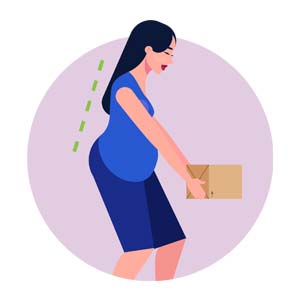 Squat down, bend your knees and keep your back straight when lifting or picking things up. Do not bend at the waist. |
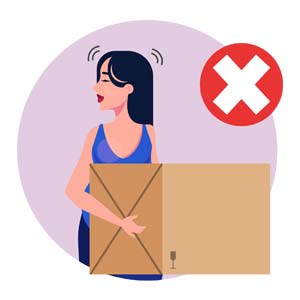 Avoid lifting heavy objects. |
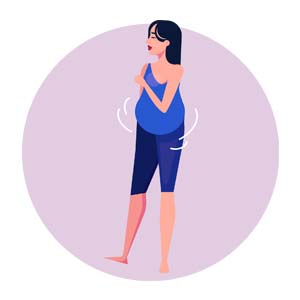 Move your feet when you turn to avoid twisting your spine. |
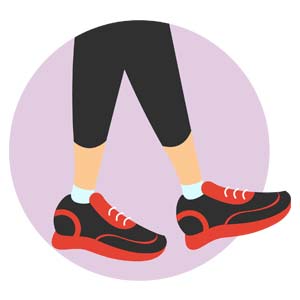 Wear low-heeled (but not flat) shoes with good arch support, such as walking or athletic shoes. |
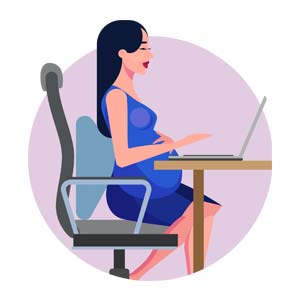 Invest in chairs with good back support or tuck a small pillow behind your lower back when sitting. |
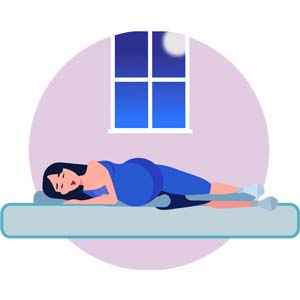 Sleep on your side with a pillow between your knees and another under your belly. |
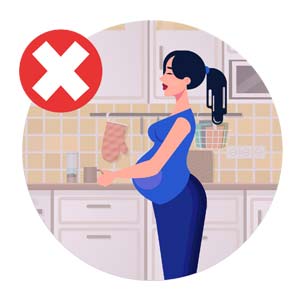 Avoid standing for too long. |
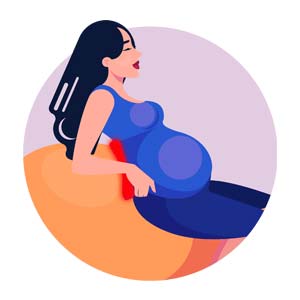 Use a heating pad set at the lowest possible temperature on the sore part of your back. Cold compresses can also help ease the pain. |
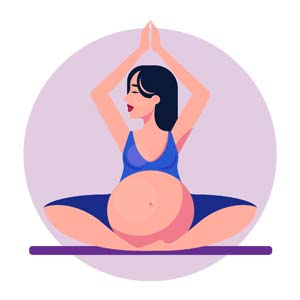 Do stretching exercises or light yoga to strengthen your hip and back. Light exercises for the back can help prepare you for labor and childbirth but consult with your doctor before engaging in any exercises to ensure they are safe for you and your baby. |
When Should I Worry About Back Pain in Pregnancy?
Call your doctor right away if the pain goes on for more than two weeks or you experience persistent numbness, tingling or weakness in the lower part of your body accompanied by a fever, burning during urination and vaginal bleeding. Dial 911 or go to the nearest emergency room if it's an emergency.
Sources:
The American College of Obstetricians and Gynecologists
MedlinePlus
National Health Services UK
